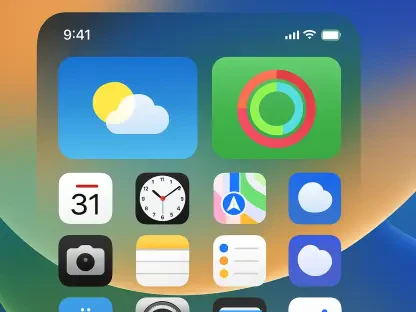The transformative power of mobile money in Africa has revolutionized the financial landscape, particularly for African women, who have traditionally faced barriers in accessing formal banking services. This shift is reshaping economic reality for many and addressing longstanding gender inequities in financial inclusion across the continent. A notable narrative highlights Jane Mwangi, a small-scale trader in Nairobi, Kenya, who navigates mobile money platforms like Pochi la Biashara to manage her business. Through these platforms, Jane can leverage digital tools such as M-Shwari to save and obtain loans, facilitating greater control over her financial affairs. This empowerment extends beyond personal finances, as it tangibly impacts women’s roles within their communities and economies, signifying an encouraging trend toward bridging the gender gap in financial access and decision-making.
Empowerment Through Accessibility
The emergence of mobile money has significantly enhanced accessibility for women in Africa, many of whom reside in regions with limited conventional banking infrastructure. Mobile technology enables users to save securely, borrow, and invest, fulfilling financial needs previously unmet by traditional banking systems. This accessibility is particularly impactful for women, who have historically been marginalized in terms of access to financial services. Mobile money democratizes these services, providing women the autonomy to make and manage their financial decisions independently. This transformation is evident in everyday scenarios, where women can now easily conduct transactions, track their earnings, and plan for future expenses using their mobile devices, consequently fostering an environment where they can flourish economically and socially.
Moreover, the proliferation of mobile money services facilitates participation in formal financial systems for individuals who otherwise might remain outside this domain. Data from the World Bank’s Global Findex report indicates a dramatic increase in mobile account ownership among women, rising from 37% in 2011 to 73% in 2024 in low- and middle-income countries. This sharp uptick aligns with a broader movement toward closing the gender gap in financial inclusion globally. By equipping women with digital wallets and financial tools, mobile money not only empowers them on an individual level but also propels communities toward greater economic stability and resilience.
Corporate Influence on Inclusion
The expansion of mobile money services is driven by substantial involvement from major telecommunications companies, which are instrumental in enhancing financial accessibility. Firms like Safaricom, Airtel, and MTN are pivotal in promoting and expanding mobile financial services, tailoring their offerings to address the needs of marginalized demographics, particularly women. This corporate participation has led to innovations such as integrated mobile wallets that streamline transactions, making digital payments a more routine part of daily economic activity. Such initiatives have reduced transaction costs, increased security, and fostered a marketplace that is inclusive and efficient.
These telecommunications giants are not merely providing technology but are actively engaging with and educating communities to maximize the benefits of mobile money. Their campaigns often focus on areas critical for women’s financial independence, including entrepreneurship support and personal finance management. The resulting ease of access and increased financial literacy amplify women’s capacity to participate in economic activities, both as consumers and entrepreneurs. By strategically investing in infrastructure and education, these companies are laying the groundwork for sustainable financial empowerment and inclusion across diverse communities.
Addressing Persistent Challenges
While mobile money has proven effective in narrowing the gender gap in financial inclusion, significant challenges persist, primarily related to mobile device ownership. Despite progress, women remain less likely to own mobile phones than men, which underscores the necessity for ongoing initiatives focused on broadening technology access. Statistics reveal a notable gap, with disparities of around 9 percentage points in certain areas. This discrepancy highlights the urgent need to fine-tune strategies to ensure equal access to mobile technology, which is essential for leveraging financial services.
Disparities also exist in smartphone ownership among women in various African countries, underscoring uneven progress across the continent. Though countries like Nigeria have made considerable strides in narrowing this gap, others such as Ethiopia still reflect substantial inequalities. Efforts to bridge these divides must address affordability, education, and cultural barriers that prevent women from fully accessing and utilizing mobile technologies. Targeted interventions that consider socio-economic and regional diversities are crucial to accelerate and sustain the momentum achieved so far.
Forging Ahead with Innovation and Policy
The rise of mobile money has greatly improved financial access for African women, many of whom live in areas with limited traditional banking. This technology lets users securely save, borrow, and invest, addressing financial needs unmet by usual banking systems. For women, who have often faced exclusion from financial services, mobile money opens doors, offering autonomy over their financial decisions. Women can now easily manage transactions, track their money, and plan expenses on mobile devices, fostering economic and social growth. This increase in accessibility aids their participation in formal financial systems, benefiting those who might otherwise be excluded. The World Bank’s Global Findex report shows significant growth in mobile account ownership among women, jumping from 37% in 2011 to 73% by 2024 in lower-income nations. This trend matches global efforts to narrow the gender gap in financial inclusion. With digital wallets and tools, mobile money empowers women individually and drives community economic stability and resilience.









